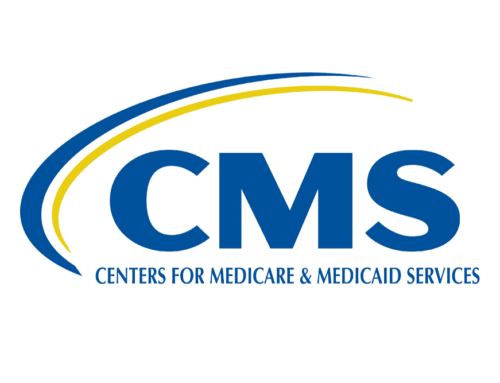CENTER UPDATE | December 2024
In this Issue:
- Sharing Responsibility for Health Care Successes and Failures
- Elon Musk Spotlights Wasteful Healthcare Spending
- Comparing Medicare Advantage Out-of-Pocket Costs with Fee-for-Service Medicare
- Economic Evidence on Cost Sharing and Alternative Insurance Designs
- Older Americans More Likely to Skip Care, Pay More
- Underinsurance Rates High Among Working-Age Americans
- Ways to Save Money in Health Care
- Navigating the Uncertainty of Healthcare Costs: Challenges and Potential Solutions
- High Costs Force Many to Skip Necessary Care
- 2025 V-BID Summit Save-the-Date
- End of First-Dollar Telehealth Coverage for HDHPs Starting 2025
- VA Plans to Drop Co-Pays for All Telehealth Services
- Health Outcome Changes in Individuals with Type 1 Diabetes After Copayment Cap
- What’s Causing US Women to Skip or Delay Medical Care?

Sharing Responsibility for Health Care Successes and Failures
We are devastated by the news of the horrific murder of Brian Thompson. The public’s response reminds us that the U.S. health care system faces significant challenges, including inefficiencies, inequities, and unsustainable costs partially driven by profit-focused models. Despite advancements in medicine, many Americans struggle with unaffordable or inaccessible care, often leading to medical debt and worse health outcomes. In a recent AJMC article, Mark Fendrick writes that not just insurers, but all stakeholders (including providers, health sciences companies, and pharmacy benefit managers), share the blame in contributing to unsustainable levels of medical care spending. The article calls for a shift toward value-based care, prioritizing high-value services while eliminating wasteful spending. Achieving this requires multi-stakeholder collaboration to align incentives, enhance equity, and ensure fiscal sustainability.



Elon Musk Spotlights Wasteful Healthcare Spending
Elon Musk said it best: there’s massive waste in healthcare. With nearly $935 billion wasted annually and U.S. administrative costs outpacing the world, there is an incredible opportunity to make care smarter and more efficient.


Comparing Medicare Advantage Out-of-Pocket Costs with Fee-for-Service Medicare
A recent Health Affairs study compared the generosity of Medicare plans in terms of out-of-pocket costs attributable to cost sharing and premiums, including both basic and supplemental services. From 2014 through 2019, projected out-of-pocket costs for a typical enrollee were 18–24 percent lower in Medicare Advantage than traditional fee-for-service Medicare.

Economic Evidence on Cost Sharing and Alternative Insurance Designs
A systematic review of health insurance cost-sharing policies suggests that increasing patient cost exposure, such as co-pays and deductibles, may not be effective in improving the efficiency of health care utilization. While these policies reduce spending, they may also lead to decreased access to necessary care and worsen health disparities, particularly when applied indiscriminately. The review advocates for a more nuanced approach to insurance design, focusing on value-based insurance and behavioral economics strategies to encourage the use of high-value care while avoiding unnecessary reductions in needed services.

Older Americans More Likely to Skip Care, Pay More
Although nearly all older Americans have Medicare coverage, they still pay more for health care than their counterparts in many other countries, according to new Commonwealth Fund survey findings. Older U.S. adults also are more likely to postpone or skip needed care. Nearly one in four older U.S. adults spent at least $2,000 out of pocket on health care last year.

Underinsurance Rates High Among Working-Age Americans
Almost a quarter of working-age American adults with health coverage are actually underinsured, facing high out-of-pocket expenses that may hinder access to care, according to a Commonwealth Fund poll. The survey also found that 12% of respondents had lost coverage at some point in the past year, and 9% were uninsured.

Ways to Save Money in Health Care
To reduce healthcare costs without compromising access or quality, policymakers can focus on three key strategies:
- Reducing the need for care by promoting healthier lifestyles and increasing the use of preventive measures
- Addressing excessive prices, particularly in pharmaceuticals
- Shifting to lower-cost care options could improve efficiency and reduce expenses while maintaining care quality.

Navigating the Uncertainty of Healthcare Costs: Challenges and Potential Solutions
Patients are increasingly frustrated by the unpredictability of out-of-pocket healthcare costs, as rising deductibles, co-pays, and other fees leave them uncertain about their bills. Accurate upfront cost information remains difficult to obtain from providers and insurers due to the unpredictable nature of healthcare services, such as additional tests or complications. Potential solutions include adjusting health insurance designs, such as co-payment-only plans or episode-based cost-sharing, which could offer more reliable, upfront pricing.

High Costs Force Many to Skip Necessary Care
A Commonwealth Fund survey found that 44% of adults in the US are carrying medical or dental debt, 57% have forgone needed care due to the cost, and up to one-third of respondents with chronic conditions said they cannot afford needed prescriptions. The report’s authors suggested extending Affordable Care Act tax credits that are set to expire, reducing out-of-pocket costs for ACA marketplace health plans, making employer-sponsored coverage more affordable for low-wage employees and maintaining Medicaid eligibility for 12 months.


End of First-Dollar Telehealth Coverage for HDHPs Starting 2025
Starting January 1, 2025, high deductible health plans (HDHPs) will no longer be able to offer telehealth services on a first-dollar basis, as the temporary relief provided during the COVID-19 pandemic comes to an end. Originally allowed under the CARES Act, this provision was extended several times, but now HDHPs must charge at least the Fair Market Value (FMV) for telehealth to remain HSA-compatible.

VA Plans to Drop Co-Pays for All Telehealth Services
Veterans Affairs leaders are working to eliminate co-pays for telehealth services and offer grants for telehealth clinics in rural areas as part of efforts to expand virtual care options for veterans. These proposals aim to reduce costs and improve access to healthcare, but will require a lengthy rulemaking process before being implemented.


Removing Prior Authorization Boosts Access to Tobacco Cessation Medications in Colorado
Recent research examined the impact of Colorado’s decision to remove the prior authorization requirement for tobacco cessation medications on their use. Although these medications are recommended as a first-line treatment for quitting smoking, most Medicaid programs typically require healthcare providers to obtain prior authorization before prescribing them. The findings show that eliminating this requirement led to an increase in the number of Colorado residents using these therapies in 2023.


Health Outcome Changes in Individuals with Type 1 Diabetes After Copayment Cap
Recent research examined the impact of Colorado’s $100 insulin copayment cap on individuals with type 1 diabetes. The study found that the cap led to a decline in out-of-pocket spending, increased medication adherence, and a reduction in health care services for diabetes-related complications, but only for those who previously spent more than $100 out-of-pocket. These improvements were not observed in individuals who had lower pre-policy insulin costs.


What's Causing US Women to Skip or Delay Medical Care?
A recent Deloitte study highlights significant barriers in the U.S. healthcare system that disproportionately affect women, leading to delayed or skipped medical care. Women are 35% more likely than men to avoid healthcare, often due to cost, long wait times, and negative past experiences. These delays can worsen health outcomes and increase long-term costs. Addressing affordability, access, and healthcare design flaws could help close the gender gap and improve overall health outcomes.
Missed an Issue of Our Newsletter?
You can always find previous editions of our weekly newsletters on our website here.






